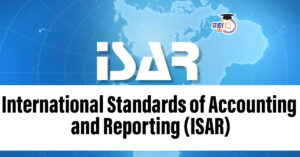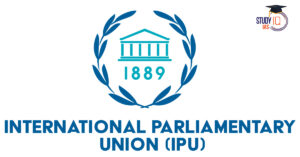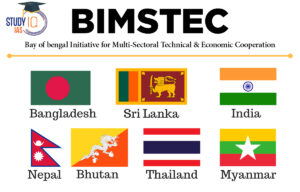Table of Contents
Context: India strongly countered Pakistan’s remarks on Jammu and Kashmir at the 58th Regular Session of the UN Human Rights Council (UNHRC) in Geneva.
UN Human Rights Council (UNHRC)
- It was established in 2006 by the United Nations General Assembly (UNGA), replacing the former United Nations Commission on Human Rights.
- The council works under the United Nations Office of the High Commissioner for Human Rights (OHCHR).
UN Human Rights Council Headquarters
The headquarters of the United Nations Human Rights Council (UNHRC) is located in Geneva, Switzerland. The council holds its regular sessions and conducts its core activities at the Palais des Nations, which is a historic building situated in the Ariana Park area of Geneva.
UN Human Rights Council President
As of March 2025, the President of the United Nations Human Rights Council (UNHRC) is Ambassador Jürg Lauber from Switzerland. He was elected on December 9, 2024, for a one-year term starting January 1, 2025.
Functions of UNHRC
- The UNHRC is responsible for promoting and protecting human rights globally.
- It investigates human rights violations, including genocide, war crimes, and racial discrimination.
- The Universal Periodic Review (UPR) mechanism allows the council to assess the human rights records of all UN member states.
The primary functions and responsibilities of the UNHRC also include:
- Promoting Human Rights: The council promotes human rights globally through dialogue, cooperation, and capacity-building, helping countries improve their human rights records.
- Addressing Human Rights Violations: The UNHRC investigates and responds to human rights abuses, including through fact-finding missions and special rapporteurs who report on specific human rights issues.
- Universal Periodic Review (UPR): Every member state’s human rights record is examined through the UPR process, providing a platform for countries to discuss their achievements and challenges.
- Special Procedures: The council appoints independent experts, or special rapporteurs, to focus on specific human rights concerns, such as freedom of expression, torture, or minority rights.
The UNHRC holds regular sessions throughout the year, convening in Geneva, Switzerland. It operates through various subsidiary bodies, including the UPR Working Group, special rapporteurs, and expert advisory committees, which conduct research and make recommendations on human rights issues.
The council adopts resolutions and decisions on a wide range of human rights topics, addressing country-specific situations and thematic issues. These resolutions are non-binding but carry significant diplomatic weight and can influence global human rights standards.
Structure and Working of UNHRC
- The UNHRC consists of 47 member states, elected by the United Nations General Assembly (UNGA) for a three-year term.
- Seats are distributed based on regional representation:
- African Group – 13 seats
- Asia-Pacific Group – 13 seats
- Latin American & Caribbean Group – 8 seats
- Western European & Others Group – 7 seats
- Eastern European Group – 6 seats
- Elections take place every year, and a country is not eligible for immediate re-election after serving two consecutive terms.
- India has been a member of UNHRC 6 times (latest was in 2022-24).
UN Human Rights Council Members
As of March 2025, the United Nations Human Rights Council (UNHRC) consists of 47 member states. These member states are elected by the United Nations General Assembly, and they serve staggered three-year terms. The council is designed to be a representative body that includes countries from different regions of the world to ensure a diverse and balanced representation. Here is the list of members of the UN Human Rights Council.
| S.No. | Country |
| 1 | Algeria |
| 2 | Argentina |
| 3 | Bangladesh |
| 4 | Belgium |
| 5 | Benin |
| 6 | Bolivia (Plurinational State of) |
| 7 | Cameroon |
| 8 | Chile |
| 9 | China |
| 10 | Costa Rica |
| 11 | Côte d’Ivoire |
| 12 | Cuba |
| 13 | Czechia |
| 14 | Eritrea |
| 15 | Finland |
| 16 | France |
| 17 | Gabon |
| 18 | Gambia |
| 19 | Georgia |
| 20 | Germany |
| 21 | Honduras |
| 22 | India |
| 23 | Kazakhstan |
| 24 | Kyrgyzstan |
| 25 | Lithuania |
| 26 | Luxembourg |
| 27 | Malawi |
| 28 | Malaysia |
| 29 | Maldives |
| 30 | Mexico |
| 31 | Montenegro |
| 32 | Morocco |
| 33 | Nepal |
| 34 | Pakistan |
| 35 | Paraguay |
| 36 | Qatar |
| 37 | Romania |
| 38 | Senegal |
| 39 | Somalia |
| 40 | South Africa |
| 41 | Sudan |
| 42 | Ukraine |
| 43 | United Arab Emirates |
| 44 | United Kingdom |
| 45 | United States |
| 46 | Uzbekistan |
| 47 | Vietnam |
UNHRC members are elected by the United Nations General Assembly through a voting process. Member states of the General Assembly cast their votes to select the council’s members based on regional groupings. These regional groupings ensure that there is a fair distribution of seats among different geographic regions. Members are chosen for their commitment to upholding and promoting human rights.
Each member of the UN Human Rights Council serves a three-year term. The terms are staggered so that approximately one-third of the council’s seats are up for election each year. This staggered approach ensures continuity and stability within the council while allowing for new members to join and bring fresh perspectives. It also provides for a level of accountability, as member states’ human rights records can be reviewed during their term, and they can seek re-election if they choose to do so after their term expires.
UN Human Rights Council UPSC
The UN Human Rights Council is an essential topic for UPSC (Union Public Service Commission) aspirants as it aligns with various components of the UPSC syllabus, including International Relations, Governance, and Current Affairs. Understanding the functioning of international organizations like the UNHRC is crucial for the Mains examination, especially in the context of India’s foreign policy and global engagements.
Additionally, UPSC Online Coaching and UPSC Mock Tests often incorporate questions related to international affairs and human rights, making familiarity with the UNHRC essential for exam preparation and success. It helps candidates stay updated with current global developments and enhances their ability to analyze and answer questions effectively in the UPSC Civil Services Examination.


 International Standards of Accounting an...
International Standards of Accounting an...
 150th Summit of Inter-Parliamentary Unio...
150th Summit of Inter-Parliamentary Unio...
 BIMSTEC Countries 2025, Area of Cooperat...
BIMSTEC Countries 2025, Area of Cooperat...





















